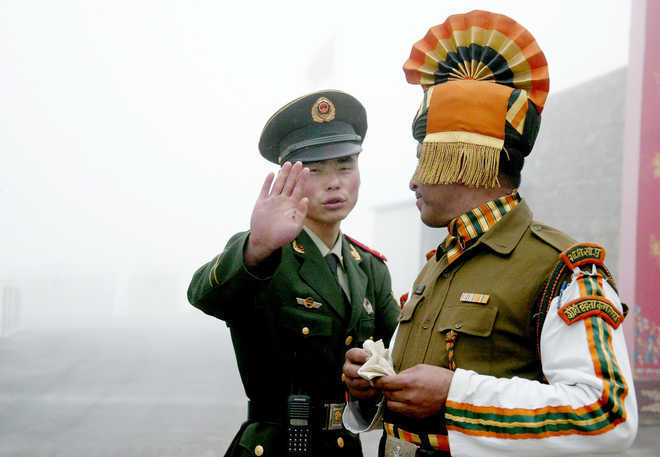
The Foreign Office usually doesn’t hold back its counsel, especially under the Modi government. At least it has never been shy of matching each Pakistani volley with one of its own or reminding Nepal of its place under the sun. In the ongoing eyeball-to-eyeball confrontation on the border with China it has adopted a more restrained position, opening the door partly to a civil dialogue on its resolution. Making the first government statement since the stalemate developed over a month ago, External Affairs Minister Sushma Swaraj spelt out the Indian stand: India wishes to peacefully resolve the issue through dialogue. But for that to happen, both countries must withdraw their troops from the faceoff point on the Doklam plateau. India can hardly withdraw first and lose face not just in the present tactical confrontation but in the entire near neighbourhood as well. This is because the Foreign Office maintains that it was the Chinese who unilaterally tried to change the status quo of the tri-junction point between China, India and Bhutan. China, however, is objecting on a different footing altogether. It finds it unacceptable that Indian troops have entered China through Bhutanese territory. The increasing frequency of Sino-Indian standoffs makes it apparent that the previous agreements to keep the border peaceful and tranquil are losing their efficacy. National Security Adviser Ajit Doval’s visit to Beijing next week should bolster attempts by diplomats to achieve closure on the jostling at Doklam. At the same time, both sides will have to start burning the midnight oil to refurbish the existing understandings on not allowing a border standoff to spill out of control. The list of disagreements between India and China has grown in the past three years. These have not been helped by a media campaign so virulent that Foreign Secretary S Jaishankar had to speak out against it. While the Chinese side has been belligerent, such confrontations do not suit the national priorities of both countries. Simultaneously, South Block may have to rework its foreign policy approach because China has displayed its ability to raise tensions at any place of its choosing on the border.
